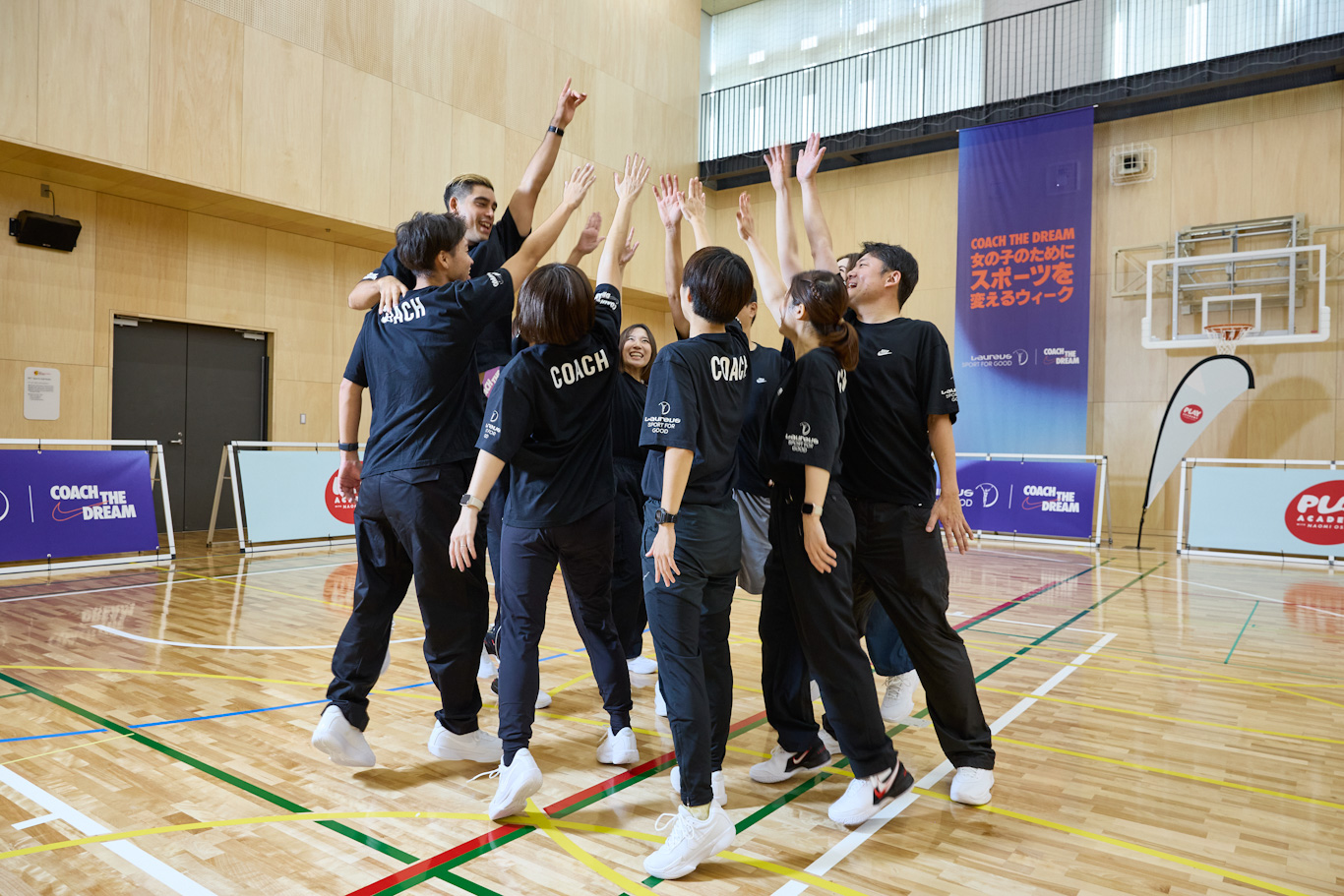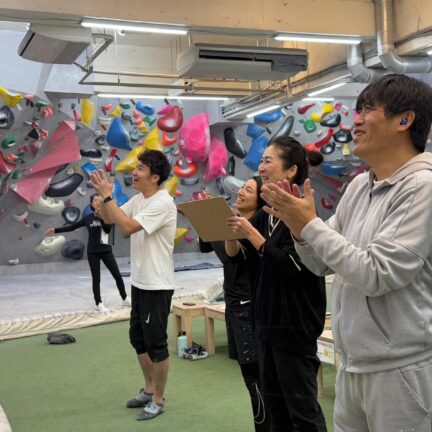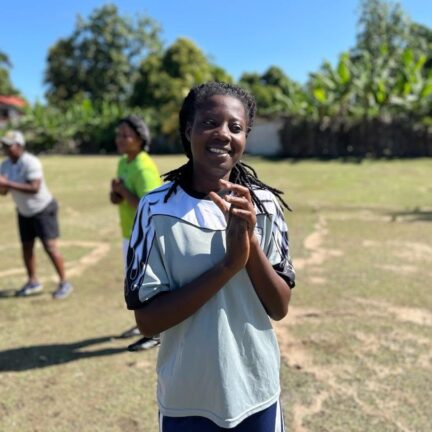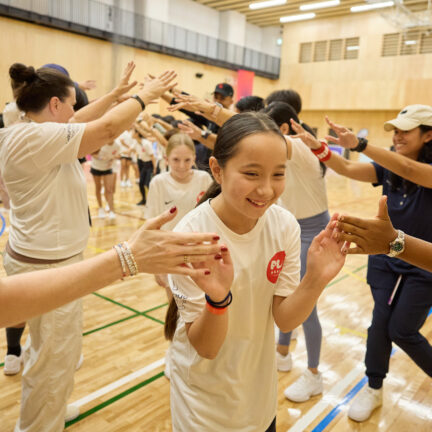Play Academy with Naomi Osaka, in partnership with Nike and the Laureus Sport for Good Foundation (“Laureus”), hosted Coach the Dream: Changing Sport for Girls in Tokyo from October 16–20, 2024.
The event featured panel discussions and training sessions for coaches. These sessions focused on how coaching can help increase sport participation among physically inactive girls in Tokyo and beyond.
Vanessa Garcia-Brito, Nike’s Chief Impact Officer, shared the intention behind this summit:
“The role of the coach is critical to driving change. And girls need inclusive coaches – coaches who look like them, who represents them, and who are creating an environment where they feel like they belong. Our ultimate goal is to shift the social and cultural mindset around the critical role that sport plays in girls’ emotional, social and physical development, and in their mental health.“
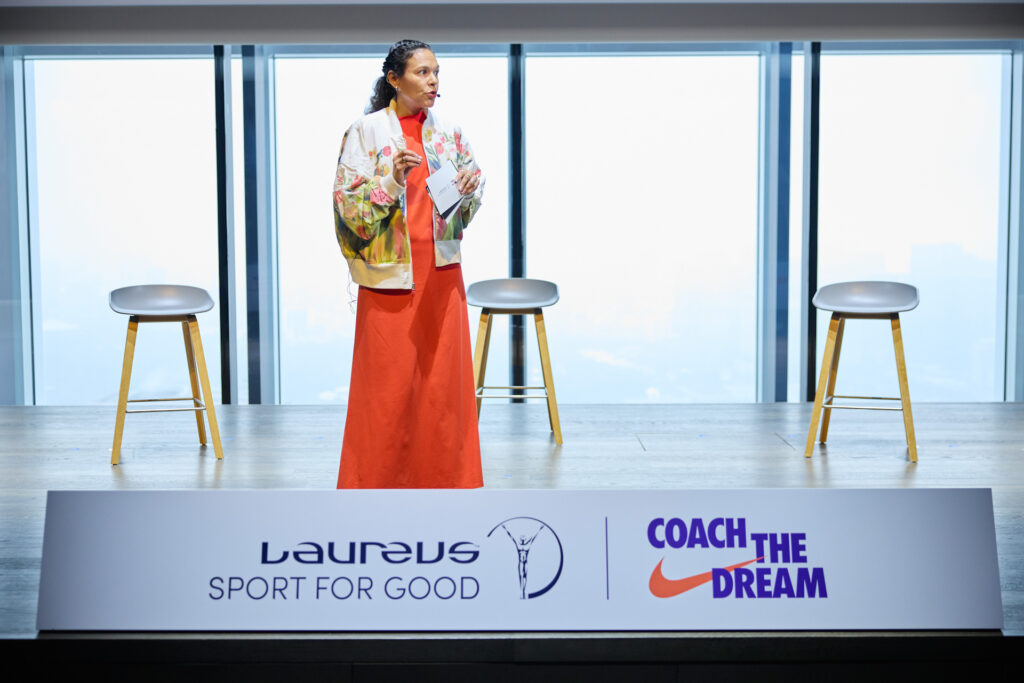
Megan Bartlett, Founder of the Center for Healing and Justice through Sport (CHJS), joined Garcia-Brito and Laureus Sport for Good Ambassador Missy Franklin in a conversation where she expressed the important role that sport and play have in the emotional and physical development of girls, and she sees coaches as uniquely positioned to shape the experience.
“I think about how we need to help drive the better experiences for girls and, to me, it always comes back to the coach and making sure that coaches have the skills they need in order to create inclusive, safe and fun environments,” Bartlett said. “If we invest in coaches having those tools, if they can enable settings where girls are encouraged to be brave and explore the joy in play and sport. I think that’s really an unlock in terms of how we change the experience more broadly.”
The involvement of coaches is essential to changing the current situation of low participation rates among girls in sports. During the five-day event, Coach the Dream: Changing Sport for Girls provided participants with valuable coaching insights.
Inviting girls to co-create solutions
A distinguishing feature of Coach the Dream: Changing Sport for Girls, was the active participation of girls themselves, who were central to the experience. Throughout the week, girls shared their stories and participated in fun, physical activities alongside professional athletes.
Yuiko Inoue, Representative Director of S.C.P. Japan, reflected on the significance of involving girls:
“Oftentimes, these events are dominated by adult discussions, but this summit was unique – creating opportunities to hear directly from girls. When children are given a chance to voice their thoughts, they not only express themselves in various ways, but also feel empowered by the experience of being heard. Seeing the girls confidently share their insights reaffirmed how vital it is for us as coaches to actively listen and create spaces for children to voice their opinion in our daily work.”
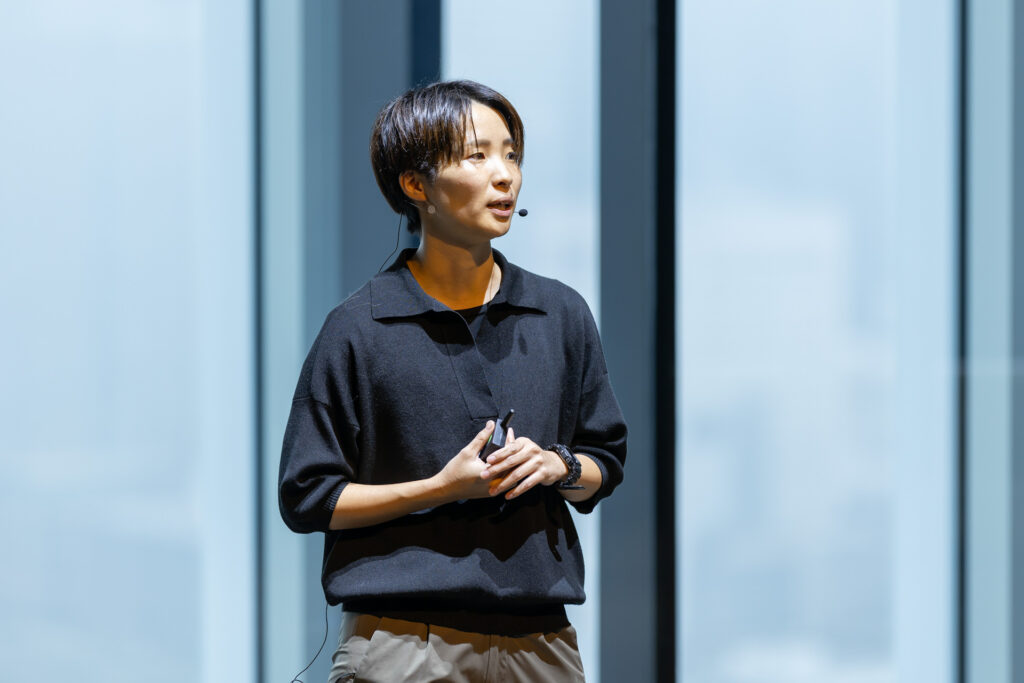
Keita Suzuki, Program Manager of the Ryutsu Keizai University’s HERS Program, shared lessons learned from the girls:
“Through the girls’ stories, I realized that sports could either diminish confidence or help discover and foster it, depending on the environment and opportunities provided. I was reminded of the power of having role models and same-gender coaches to create a supportive atmosphere and the potential of sports.”
This highlighted the importance of involving girls in discussions and respecting their opinions to shape meaningful directions collaboratively.
Committed, inclusive and informed coaches
The final day of the summit featured a session on “Trauma-Informed Coaching,” which focused on understanding the relationship between the brain and trauma, and how coaches can build positive relationships with the girls
The training was led by Master Coaches from Japan, who have been trained for months by the US-based CHJS, in trauma-informed sports coaching. Inoue, who participated as one of the coaches, reflected on her experience:
“I was pleased to learn from a neuroscience perspective how rhythmic, patterned movements can foster a sense of security. While repetitive warm-ups are often undervalued today, I recalled feeling reassured as a child during soccer practices when drills began predictably. This reminded me of the importance of adapting movements and methods to fit the needs of children in our current environments.”
Suzuki, who is also a Japanese Master Coach, highlighted the importance of creating the right environment.
“I understood that learning and skill acquisition do not progress sufficiently under excessive stress, and that for athletes to grow both personally and in their skills through sports, it is vital to ensure positive relationships and psychological safety in the sporting environment, so that athletes feel connected to their teammates and the environment. Furthermore, I realized the importance of coaches and staff fully understanding and consciously working on creating the right environment. To provide athletes with a better environment, the coach’s continuous learning and effort are indispensable.”
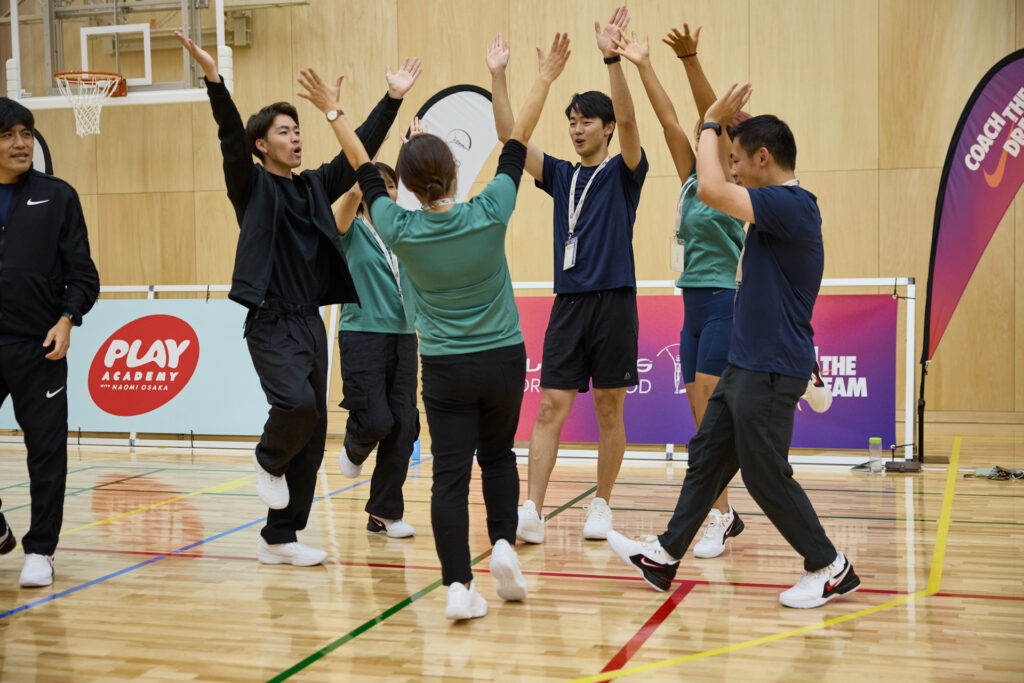
From ‘understanding’ to ‘practice’
The coaches who participated in Coach the Dream carried on with a deepened understanding of the coach’s role in creating opportunities and environments – where girls can enjoy sports and play, and support their growth.
Bartlett emphasized the key to bridging understanding to implementation is to keep improving as a coach.
“In order to keep improving as a coach, coaches should: 1) Seek feedback; and 2) Build in time for regular reflection. Coaches should build in formal and informal time to get feedback directly from their athletes, from parents and from other coaches. Simply asking young people, ‘Is there anything you’d like me to do differently?’ can uncover big and small things coaches can do to improve the experience for young people – and, therefore, improve as a coach. Building time at the end of practice where everyone spends a minute in quiet reflection will allow coaches to consider things they can do differently before they move onto other parts of their lives.“
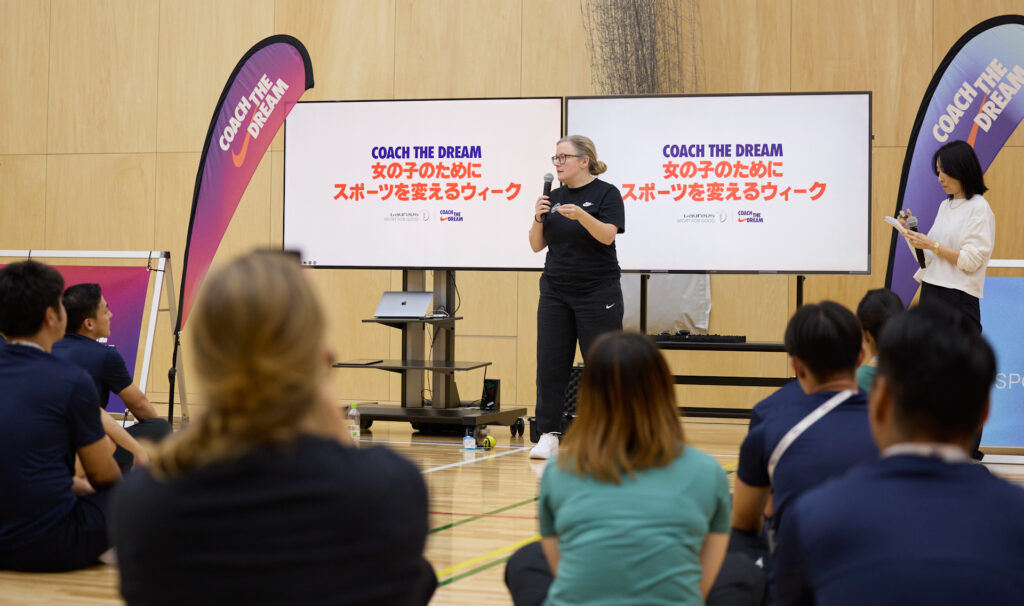
Looking ahead, Inoue and Suzuki shared their thoughts for the future:
“We want to focus even more on truly listening to the voices of the children. I want to continuously convey to the girls participating in the activities that your voice matters. At the same time, I recognize that some girls might initially feel stressful when speaking up, so I want to create a safe space for them to manage this stress on their own, as I learned in trauma-informed coaching,” Inoue said.
Suzuki added: “I feel that I am now able to consciously take a broader view of athletes’ behaviors, their voices and even the team environment. I have also become more aware of the importance of not just creating opportunities for girls to participate in sports, but also of building an environment where they can continue engaging in sports. Though I haven’t been able to take concrete actions, I am eager to take on this challenge.”
The “Japanese Coaching Guide for Girls,” which highlights key roles and points that coaches should be aware of, mentioned in this article was presented at the event.
